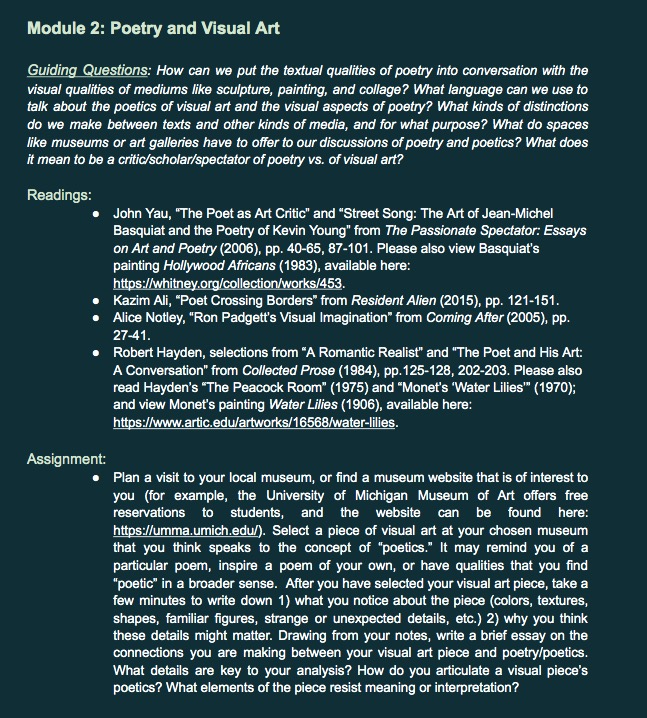New Digital Directions in the Series
Poets on Poetry
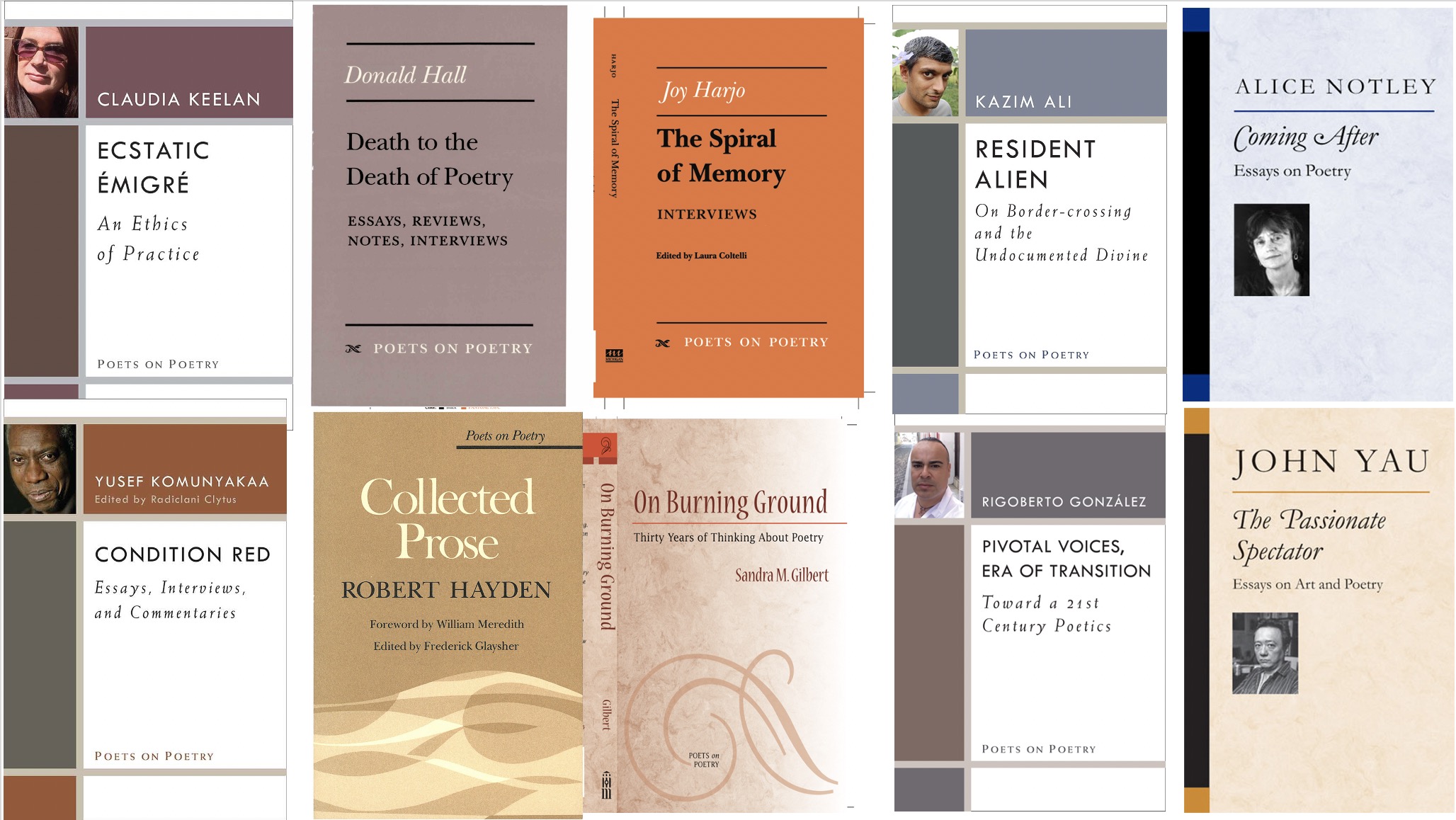
University of Michigan Press' Poets on Poetry series was founded on a vision: to collect “critical works by contemporary poets, gathering together the articles, interviews, and book reviews by which they have articulated the poetics of a new generation.” To further the aims of the Poets on Poetry series, which began in 1978 with series founder Donald Hall, and to develop them in innovative and exciting new directions, University of Michigan Press has launched a digital transformation pilot project with an aim to reinvigorate interest in the Poets on Poetry series and at the same time demonstrate the creative and educative possibilities of a broader series digitization initiative in the near future.
For our pilot project, we have selected ten texts that represent the rich and various array of voices found in the extant volumes of the Poets on Poetry series: Robert Hayden’s Collected Prose (1984), Donald Hall’s Death to the Death of Poetry (1995), Joy Harjo’s The Spiral of Memory (1996), Alice Notley’s Coming After (2005), John Yau’s The Passionate Spectator (2006), Sandra M. Gilbert’s On Burning Ground (2009), Kazim Ali's Resident Alien (2015), Yusef Komunyakaa’s Condition Red (2017), Rigoberto González’s Pivotal Voices, Era of Transition (2017), and Claudia Keelan’s Ecstatic Émigré (2018). The authors we have chosen for this digital relaunch of Poets on Poetry come from a variety of communities, backgrounds, and poetic sensibilities, and their works have helped shape our vision for the series' future.
Our goal is to take advantage of the opportunities provided by Michigan Publishing's Fulcrum platform to curate a selection of interactive and accessible digital texts and to supplement these texts with other related materials (performances, interviews and conversations, images, pedagogical tools, and paratexts) linked to the EPUBs. These digitized texts and supplementary materials will be an invaluable resource to poets, scholars, and educators looking to engage with contemporary critical discussions about poetry and poetics.
Accessing the Series' Past
Death to the Death of Poetry: Essays, Reviews, Notes, Interviews
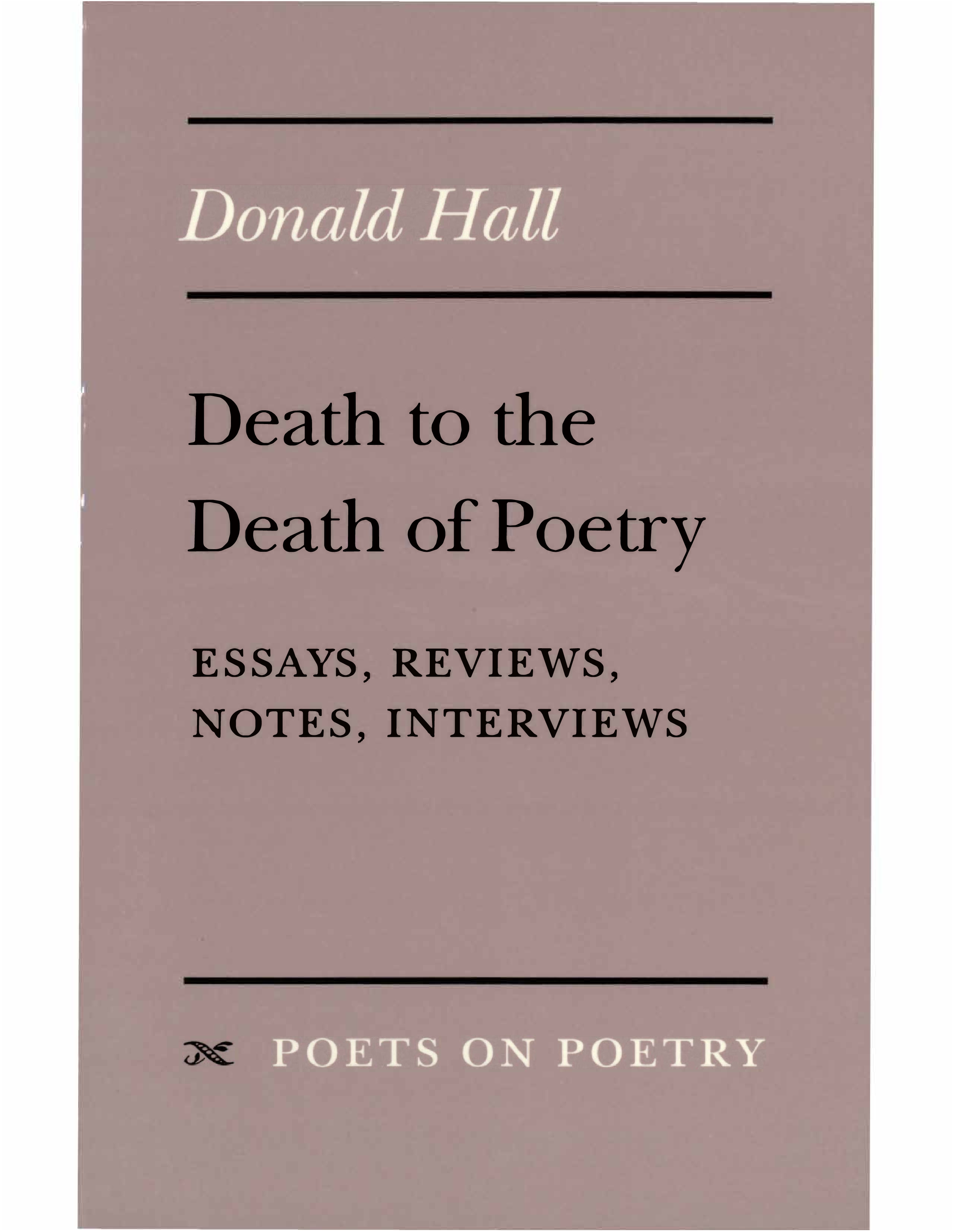
There are a thousand ways to love a poem. The best poets make up new ways, and the new ways mostly take getting used to.
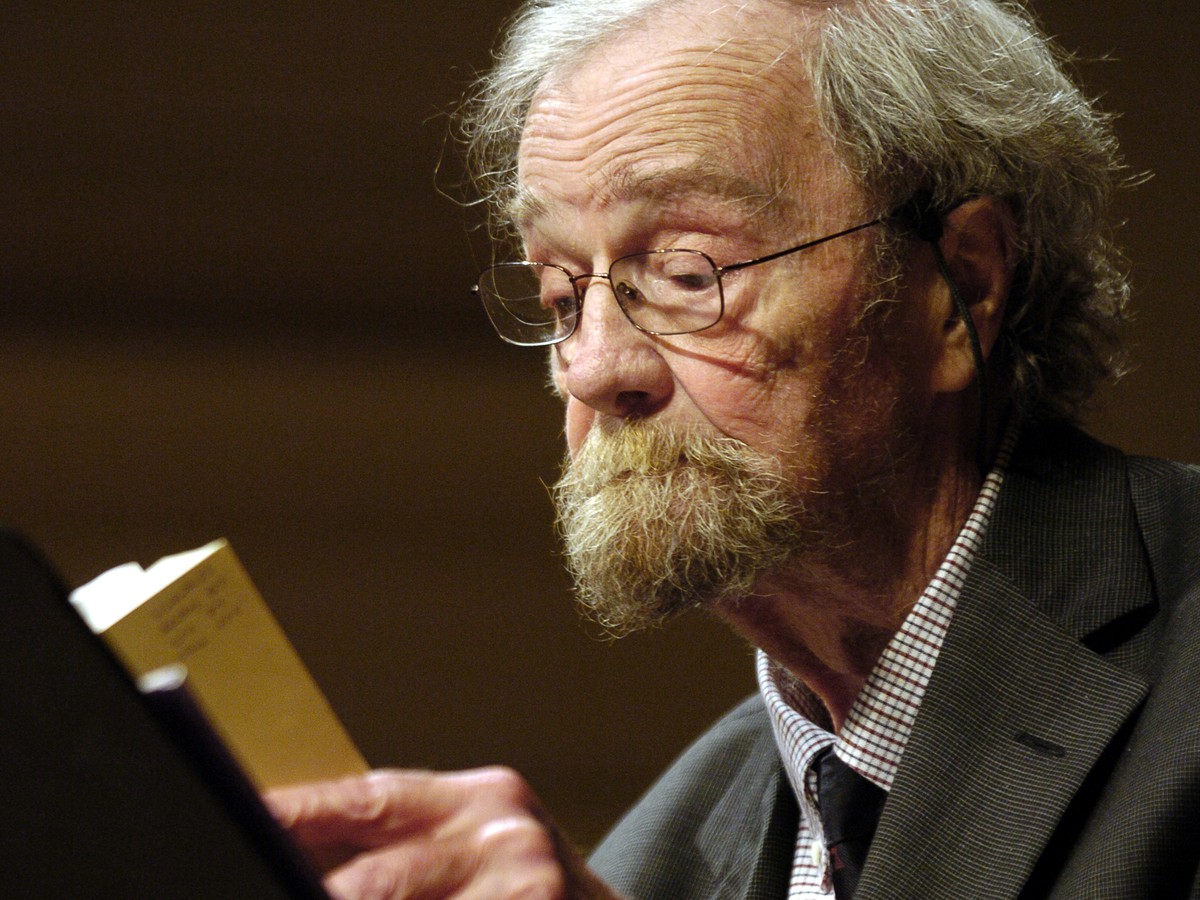
Collected Prose
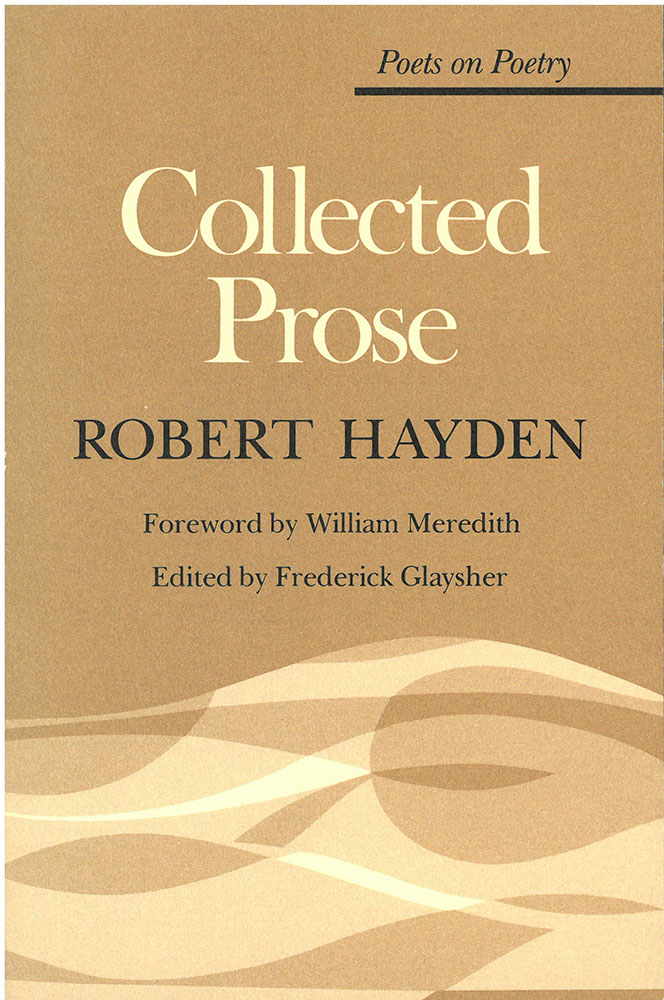
After all, as a poet I am trying to come to grips with reality, yes, to define reality as I can perceive it. Isn't that what every poet worthy of the name is attempting to do? [...] What is a poet but a human being speaking to other human beings about things that matter to all of us?
Robert Hayden, former Poet Laureate and the first African American to be appointed as Consultant in Poetry to the Library of Congress.
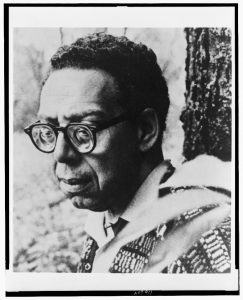
"Middle Passage"
For the text and audio recording of “Middle Passage,” a poem by Robert Hayden, see: https://www.poetryfoundation .org/poems/43076/middle-passage

Hayden, "How it Strikes a Contemporary" (1978)
For an audio recording of Robert Hayden's 1978 Library of Congress lecture “How it Strikes a Contemporary: Reflections on Poetry and the Role of the Poet," click here.
The Spiral of Memory: Interviews
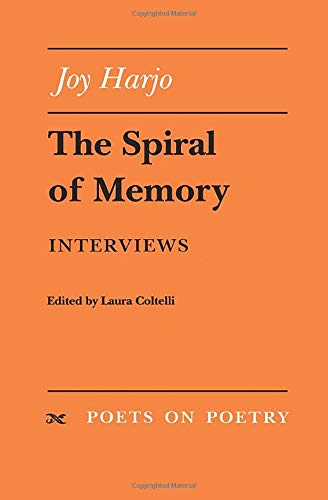
I think I always write with especially these women in mind because I want us all to know as women, as Indian people, as human beings that there is always hope, that we are whole, alive, and precious.
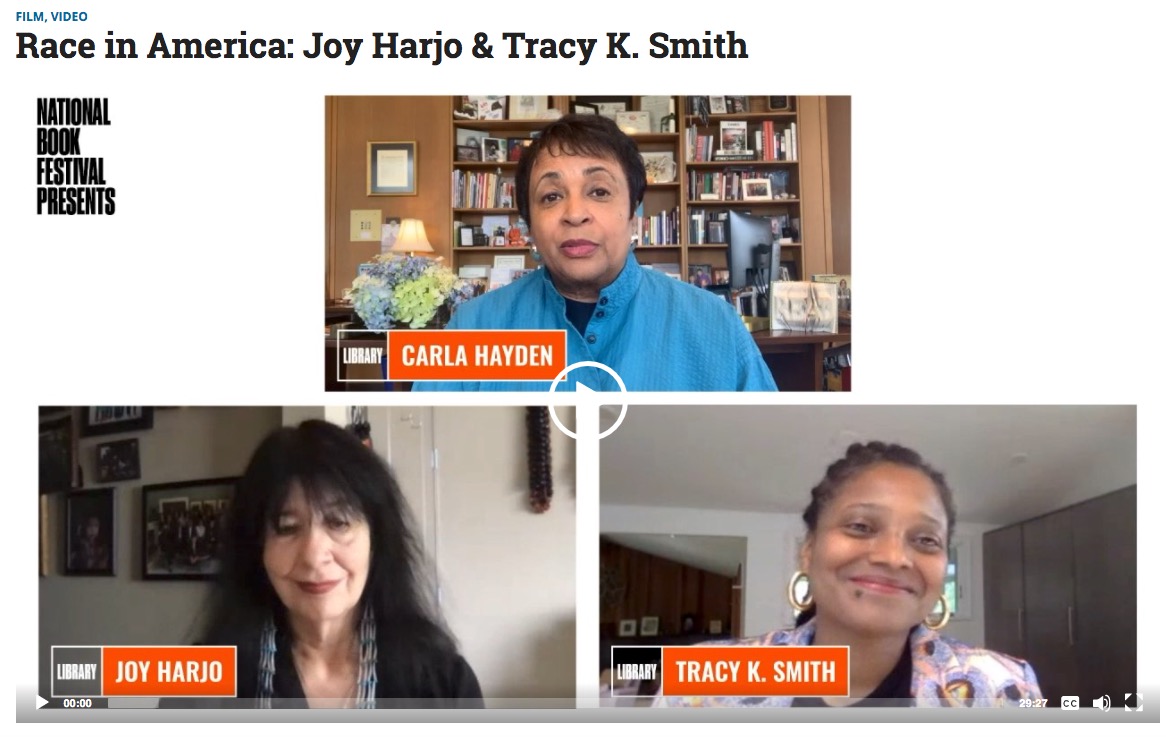
“Hear You, Hear Me: Conversations on Race in America" (2020)
For a video recording of a 2020 Library of Congress Zoom conversation “Hear You, Hear Me: Conversations on Race in America" with U.S. Poets Laureate appointees Joy Harjo and Tracy K. Smith, click here.
Coming After: Essays on Poetry
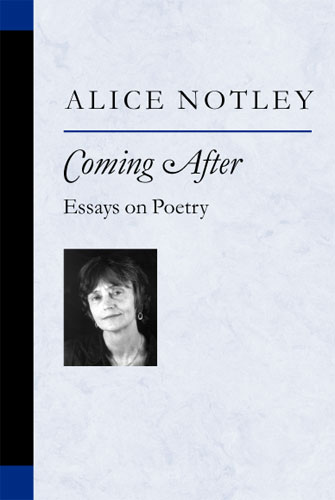
What might be another kind of poetry? Whole other poetry springing from nowhere, as at the beginning of the world, in the hands of women? Or perhaps even more desirably, as at the beginning of the world, invented equally by women and men together.
"At Night the States"
For the text and an audio recording of "At Night the States," a poem by Alice Notley, see: https://www.poetryfoundation .org/poems/50834/ at-night-the-states
"The Descent of Alette"
For an excerpted text of "The Descent of Alette," a poem by Alice Notley, see: https://poets.org/poem/ descent-alette-i-walked.
BOMB Magazine with Alice Notley
For a 2015 BOMB Magazine interview with Alice Notley, see: https://bombmagazine.org/ articles/alice-notley/.
The Passionate Spectator: Essays on Art and Poetry
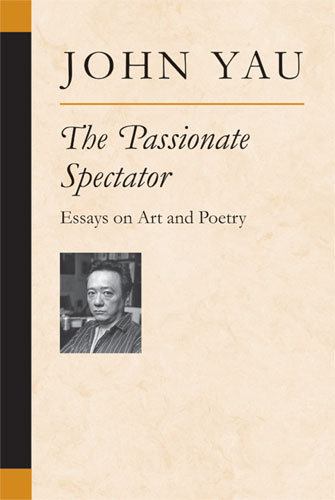
It takes a certain kind of resiliency to be a poet critic who not only doesn't become a curmudgeon [...] but also still manages to maintain a high level of sophistication, insight, and wit in your essays and reviews.
On Burning Ground: Thirty Years of Thinking About Poetry
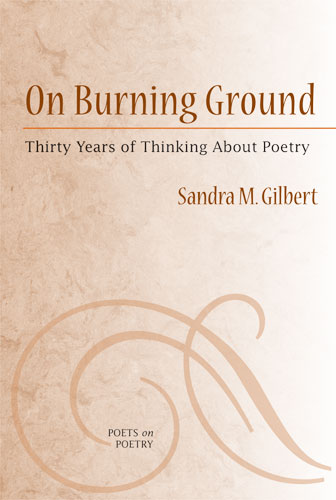
But the outsider, the Other, the woman poet owns only her own vision, and therefore she can steal into the house of myth, see everything, and say for the first time (and thus with the dearest freshness) what everything means to her.
Sandra M. Gilbert; award-winning poet, critic, and Distinguished Professor of English Emerita at the University of California, Davis.
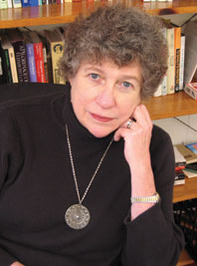
"Belongings"
For the text of "Belongings," a poem by Sandra M. Gilbert, see: https://www.poetryfoundation .org/poems/51832/belongings- 56d22fd735e2a.
Teaching Poets on Poetry
The Poets on Poetry series offers many exciting inroads for thinking about how we read and engage with poetry in both scholarly and public life. In order to think pedagogically about the Poets on Poetry series, University of Michigan PhD candidate, Rackham Fellow, and University instructor Amanda Kubic has created a syllabus project that demonstrates how instructors can teach selected texts and supplementary materials from the Poets on Poetry series in the university classroom.
The project contains five modules that university instructors can adopt or adapt to teach a selection of materials from Poets on Poetry and relevant supplementary content. The modules have been organized by theme: performing poetry, poetry and visual art, poetry and revision, poetry and the public, and emerging voices in poetry. These modules can be incorporated into a variety of syllabi and are ideal for an undergraduate English course or creative writing course. Each module comes with a set of driving questions to guide the discussion of the material, a selection of readings, and proposed assignments to help students comprehend and engage with the material. See the following sample module on "Poetry and Visual Art":
We hope these modules will be a valuable resource for instructors looking to engage with contemporary critical conversations about poetry and poetics.
Imagining Digital Futures
Resident Alien: On Border-crossing and the Undocumented Divine
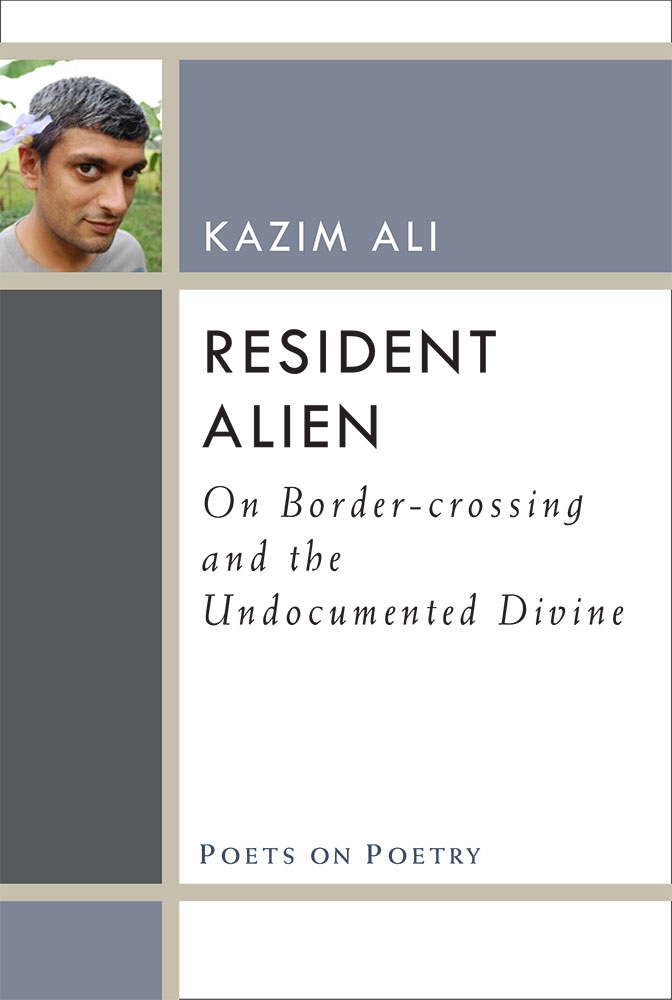
Well it is me, then, with my Moorish passport, refusing to write the laws of the nation on my body but instead to learn through the language of poetry what it really is that binds one human to another in community.
Ali Audio Archive
"From the Fishouse," an audio archive of emerging poets, features recordings of Ali reading his poetry: http://www.fishousepoems.org /category/kazim-ali/
"Home"
For the text of "Home," a poem by Kazim Ali, see: https://www.poetryfoundation .org/poems/54498/home- 56d234e87b113.
"Bright Felon DVD Extra/Alternate Ending"
For the text of "Bright Felon DVD Extra/Alternate Ending, " a poem by Kazim Ali, see: https://poets.org/poem/bright-felon-dvd-extraalternate-ending.
Condition Red: Essays, Interviews, and Commentaries
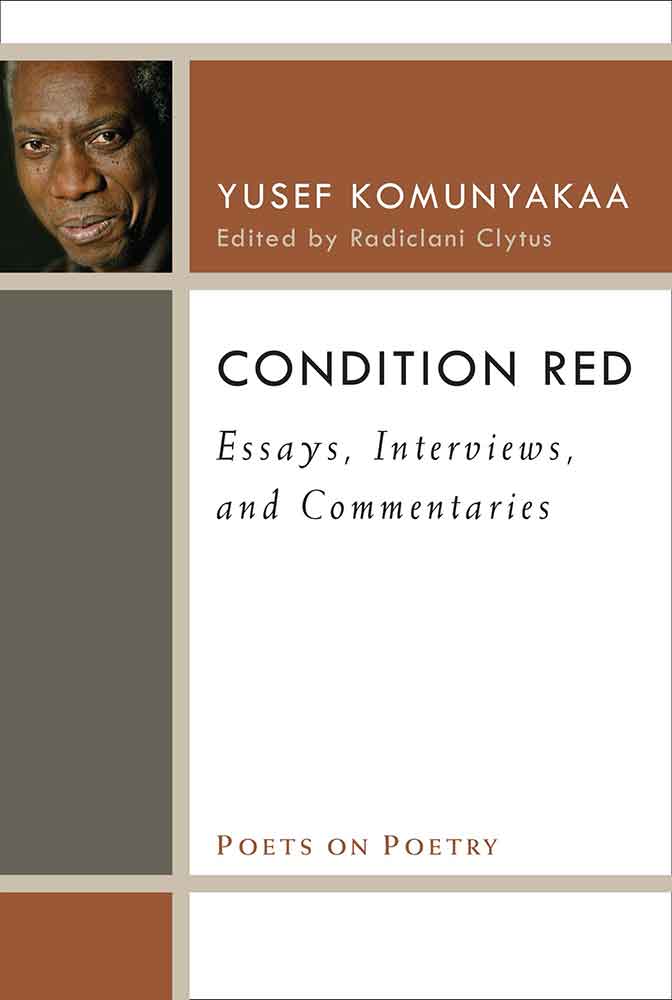
One has to be inquisitive about life, about the elemental and unthinkable components of existence. Such questions keep us connected to who we are, and what our possibilities are as human beings.
Pivotal Voices, Era of Transition: Toward a 21st Century Poetics
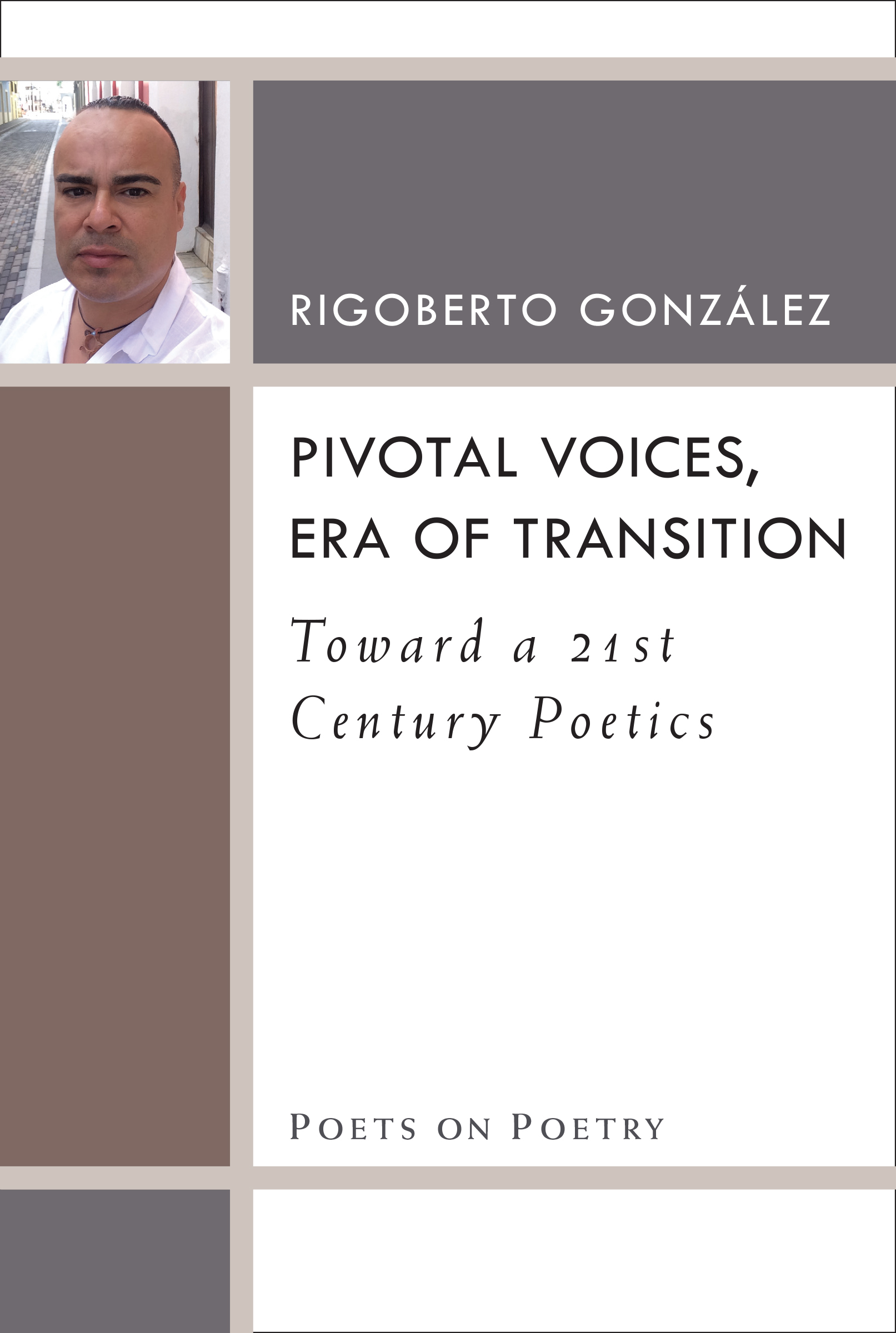
And it becomes particularly pressing today [...] that the Chicano voice—that Chicano voices—must continue to speak in order assert the Chicano community’s relevance to American society and culture. Poetry today, as in the past, will write the way.
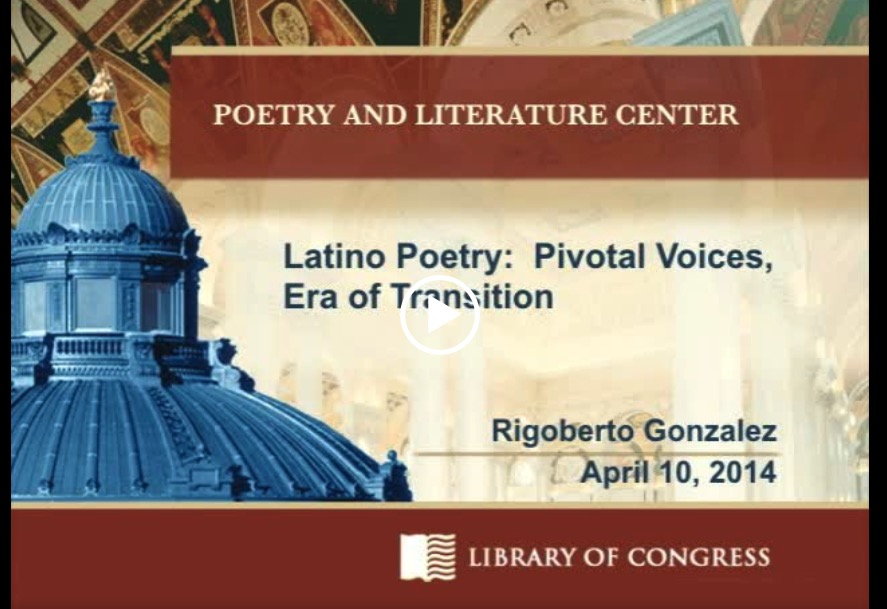
González, "Latino Poetry: Pivotal Voices, Era of Transition" (2014)
For a recording of Rigoberto González's 2014 Library of Congress lecture "Latino Poetry: Pivotal Voices, Era of Transition,” click here.
Ecstatic Émigré: An Ethics of Practice
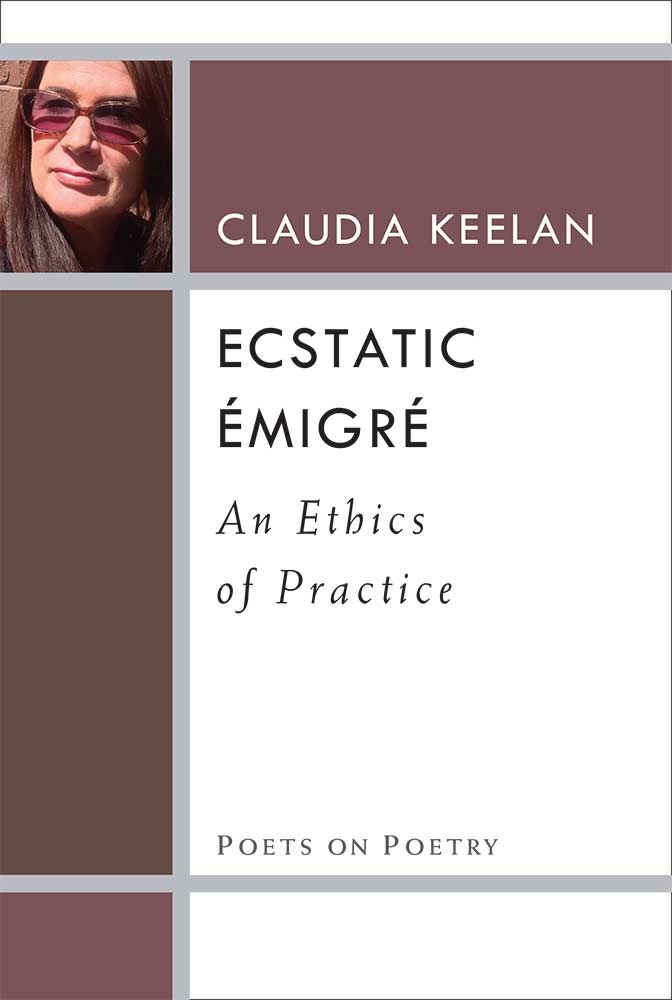
The figure of the émigré intensifies the evidence of the temporal. The place you call home, country, native habitat, homeland—you will depart, and what you are will also remain, as energy remains.
A Letter From the Editor
Donald Hall was a keen observer and an impassioned advocate for poetry. In this, he followed in the tradition—or traditions, plural—of the many forebears whose poetry fueled his own. He founded the Poets on Poetry series to remind us not only of the pleasures of poetry and the importance of creative expression but also of the perils we face whenever we ignore the caged bird’s song or continue to defer the dream Langston Hughes writes about so poignantly and so urgently in “Harlem.”
For the past six decades, the Poets on Poetry series has provided a forum for contemporary poets to speak—oftentimes boldly—to the issue of why poetry matters. “Gathering together the articles, interviews, and book reviews by which [these poets] have articulated the poetics of a new generation,” titles in the series have presented readers with an open invitation to follow—and equally to contribute to—a rich and varied dialogue about what role literature and the arts play in society, about the shifting sands of cultural production and consumption, even about what poetry is and why it matters where and from whom our definitions may have originated.
The series catalogue exemplifies the commitment the University of Michigan Press has long had to fostering a dialogue as diverse and inclusive as it is well-considered and engaging. Spanning the decades since the 1978 publication of William Stafford’s Writing the Australian Crawl, the series has published books by Meena Alexander, Kazim Ali, MartÍn Espada, Sandra M. Gilbert, Rigoberto González, Thom Gunn, Joy Harjo, Robert Hayden, Yusef Komunyakaa, Natasha Saje, Anne Sexton, and John Yau, among a host of other luminaries.
And this meaningful proliferation of voices and perspectives is being further amplified digitally. Through an innovative initiative—the scope and details of which you see here—past and future Poets on Poetry titles will include an interactive EPUB edition. These EPUBs will feature supplemental content such as online articles, video recordings of book festival events, poetry films, and audio recordings of interviews, making the material on the page (or screen) come alive in new and exciting ways and creating an even more immersive—and accessible—reading experience.
The editorial team is also readying an expanded digital publishing calendar that will include short-form, multimedia, and serialized content in addition to the print books and EPUBs that have been the signature of the series to this point.
It is a particularly exhilarating time for the Poets on Poetry Series, and I am hopeful that these additional avenues for exploring poetry and celebrating the poets who make it—and make it matter to us in all the ways that it does—succeed in welcoming even more voices to the conversation Donald Hall and the other exceptional editors who preceded me have helped to frame by publishing the books they did.
Derek Pollard
Series Editor
